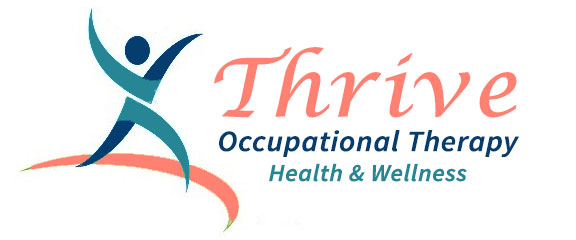Hi there! My name is Maddie Hubka, and I am a third-year occupational therapy student at the University of Nebraska Medical Center. Currently, I am in the final semester of my program, where I am completing my capstone experience at Thrive OT. In conjunction with this clinical experience, I am developing educational resources aimed at informing students, therapists, and the public about holistic women’s health and wellness. The objective of these blog posts is to share information that I have acquired throughout my capstone experience. I intend to educate the public in order to promote optimal health and wellness.
As a graduate student, it’s common to experience significant stress due to the demands of academic work, professional responsibilities, and personal obligations. Many individuals can relate to feelings of anxiety and uncertainty about the future, which may stem from concerns about upcoming exams, career prospects, or external circumstances that feel beyond one’s control. In light of these challenges, I decided to create this blog post as a resource for others navigating similar experiences. Throughout my capstone journey, I discovered a tool that has proven beneficial for my relaxation and overall wellness. I hope that sharing these insights and strategies can aid others in managing stress and enhancing their well-being.
Some of my happiest memories are from childhood with my younger brothers, growing up in the countryside. One joyful experience we share is running outside barefoot, which evokes strong feelings of nostalgia and peace. The sensation of cool grass between the toes while playing outdoors fosters a sense of calmness and connectedness to the earth. This practice, often referred to as “grounding” or “earthing,” has been studied for its potential benefits, including reducing stress, improving mood, and enhancing overall well-being.
Engaging with the natural environment in this way can offer a deeper appreciation for our surroundings. Grounding, also known as “earthing”, is a practice that involves reconnecting with the Earth’s natural electrical energy. People who practice grounding often report feeling healthier, more energetic, and in better spirits, along with a significant reduction in pain.
Benefits of grounding:
- positive physical and mental well-being
- reduced inflammation
- lowered stress levels
- alleviated pain
- improved blood circulation
- enhanced energy
- better sleep quality
- overall sense of well-being
The Earth has long been recognized as a vital power source for electrical industries, and its benefits extend to our health as well. However, modern lifestyles—characterized by wearing shoes and spending time in high-rise buildings—can distance us from direct contact with the ground. This separation may result in imbalances in our bodies and a diminished sense of connection to nature.
Engaging in grounding is simple and accessible. To practice grounding, one can step outside and walk barefoot, allowing the sensations of various natural surfaces—be it grass, soil, gravel, stone, or sand—to connect with the feet. Each surface provides a distinct experience while facilitating the grounding process. Similar to how sunlight delivers vital vitamin D, the ground serves as an excellent source of energy.
Grounding can be practiced for any duration, depending on individual preferences. For those unable to access outdoor spaces, grounding mats or devices are available for use indoors, making it possible to benefit from this practice at home or in the office. For more information about grounding or grounding mats, please consult your therapist at Thrive OT. You can also use the link below for our recommendations on our favorite grounding materials.
Hooga Grounding Materials: Visit this link.
Hooga Code: Thrive12
References:
Meningoz, W., Latz, T. T., Ely, R. A., Kamei, C., Melvin, G., & Sinatra, D. (2020). Integrative and lifestyle medicine strategies should include earthing (grounding): Review of research evidence and clinical observations. Elsevier, 16(3), 152-160. 10.1016/j.explore.2019.10.005
